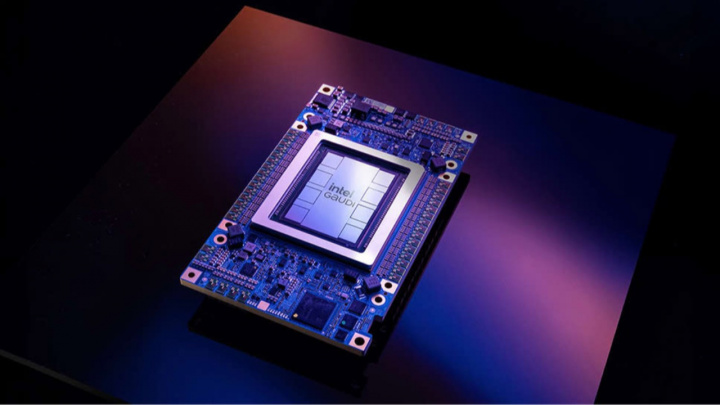Intel Challenges Nvidia H100 with Lower-Priced Gaudi 3 AI Accelerator
Intel's new Gaudi 3 AI accelerator presents a promising cost-effective alternative to Nvidia's H100. Intel is offering its baseboard featuring eight Gaudi 3 processors at a significantly lower price point while claiming superior performance in artificial intelligence (AI) workloads, positioning it as a serious competitor to Nvidia's dominant market position.

Intel's Gaudi 3 AI accelerator emerges as a budget-friendly alternative to the Nvidia H100, with Intel pricing its universal baseboard containing eight Gaudi 3 processors at $125,000. This represents a substantial price reduction compared to Nvidia's offering, while Intel promises better performance for AI workloads, as reported by TechRadar and Ars Technica.
The baseboard with eight Gaudi 3 processors is priced at $125,000, which translates to approximately $15,650 per chip when purchased in bulk. This pricing strategy makes Intel's offering roughly half as expensive as Nvidia's H100, which sells for around $30,000 per 80GB card. This price difference is part of Intel's strategy to compete in the AI accelerator market dominated by Nvidia, potentially offering a more affordable option for high-performance AI computing.
Inference speed is the measure of how quickly a machine learning model can produce responses, results, or predictions when presented with new data. This is particularly important for real-time applications such as self-driving cars, real-time speech recognition, or real-time translation, where minimizing latency is critical.
The performance claims for Gaudi 3 are impressive: Intel states it achieves up to 50% faster training times on models like Llama 7B, 13B, and GPT-3 175B compared to the Nvidia H100. For inference tasks, Intel reports a 50% increase in throughput and 40% greater power efficiency across various models, including Llama 7B, 70B, and Falcon 180B. The chip is also claimed to offer 30% faster inference speeds than Nvidia's H200 on certain models. However, it is important to note that these benchmarks are provided by Intel and require independent verification.
Intel's introduction of Gaudi 3 is expected to disrupt the AI accelerator market, challenging Nvidia's dominance. Major tech companies like Dell, Hewlett Packard Enterprise, Lenovo, and Supermicro have already committed to bringing Gaudi 3 systems to market. Intel also plans to expand its partner network with six additional companies: Asus, Foxconn, Gigabyte, Inventec, Quanta, and Wistron. This strategic move aims to make Intel's AI systems more widely available and competitive. Despite Gaudi 3's attractive price-performance proposition, Intel faces an uphill battle against Nvidia's well-established ecosystem (like CUDA) and brand loyalty within the AI sector.





